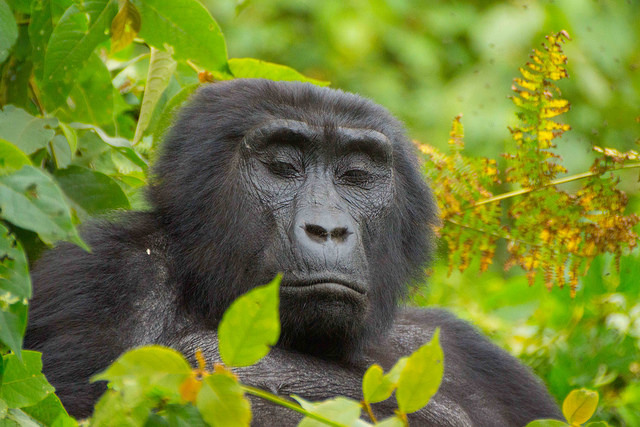What is the elevation of Buhoma? Buhoma, located in the northern section of Bwindi Impenetrable…
Gorilla Habituation Experience
Gorilla Habituation experience is where tourists spend more time of four hours with the endangered mountain gorillas unlike gorilla trekking which takes strictly one hour. Through gorilla habituation experience, tourists are also able to interact with the habituated gorillas and as well observe how these gorillas are habituated. Clients can also take clear photos of the gorillas, but however, the flash lights if the cameras have to be switched off in order not to scare away the gorillas. And during this experience, tourists move together with the researchers (those who train the gorillas to get used to people) because they help to give advice and guidance on how to handle interact with these gorillas.
 Gorilla habituation is a process where the wild mountain gorillas are trained so that they can become used to people. The training is done by researchers, trackers, rangers, and conservationists. This takes them a period of 2-3 years for the training to be complete. During this period of time, the researchers always visit particular groups of the wild gorillas on a daily basis and are able to learn much about each gorilla and the way they behave, they are also able to give them names individually. With time, the wild gorillas are able to get used to human beings and once the researchers get to confirm that these mountain gorillas can now be trekked, then a mocking exercise is brought up where some people for example journalists and scientists are allowed to visit them. Therefore if a particular gorilla family passes this exercised, it’s then confirmed ready for trekking. However, clients should expect to encounter with semi-habituated mountain gorillas which may hide and behave in an unusual manner.
Gorilla habituation is a process where the wild mountain gorillas are trained so that they can become used to people. The training is done by researchers, trackers, rangers, and conservationists. This takes them a period of 2-3 years for the training to be complete. During this period of time, the researchers always visit particular groups of the wild gorillas on a daily basis and are able to learn much about each gorilla and the way they behave, they are also able to give them names individually. With time, the wild gorillas are able to get used to human beings and once the researchers get to confirm that these mountain gorillas can now be trekked, then a mocking exercise is brought up where some people for example journalists and scientists are allowed to visit them. Therefore if a particular gorilla family passes this exercised, it’s then confirmed ready for trekking. However, clients should expect to encounter with semi-habituated mountain gorillas which may hide and behave in an unusual manner.
Gorilla habituation experience is restricted to a maximum of only four people per day and for only four hours. The age limit for people to go for this experience is 15 years and above and therefore individuals less than 15 years are not accepted.
Bookings for the gorilla habituation experience permits should be done in a period of 3months or 6months before the time of the experience especially in the months of December to March and July to October, to avoid any kind of disappointments since this experience is really attracts a number of tourists who are interested in it and they do love as well.
The amount of money paid in order to get a gorilla habituation experience permit is only $1500 which is quite more than that of just gorilla trekking which is $600, and therefore clients should ensure to get this permit before they expect to go for this gorilla habituation experience. The gorilla habituation experience can be got by directly by E-mailing the Uganda Wildlife Authority (UWA) or it can be organized for you by a Tour company or Safari company.
Gorilla Habituation experience is only carried out in Uganda at Bwindi impenetrable National Park and you cannot find it in either Rwanda or the Democratic Republic of Congo.
Mountain Gorilla Habituation experience was officially introduced in Bwindi Impenetrable National park through the Uganda Wildlife Authority (UWA) on 1st January 2014 and therefore all clients that are interested in this experience can only find it in Bwindi National park in Uganda.
The Uganda Wildlife Authority (UWA) has authorized only two gorilla families for gorilla habituation experience and so they have been put aside particularly for this experience. These two gorilla families are found in Nkuringo and Rushaga in the south of Bwindi National park and therefore gorilla habituation experience is only done in the South of Bwindi Impenetrable National Park.
All in all, Bwindi Impenetrable National Park has about eleven habituated gorilla families and these include; Mubare, Habinyanja, and Rushegura in the northern part of the park called “Buhoma”, then Bitukura, Oruzogo, and Kyaguriro on the east of Bwindi called “Ruhija”. Nshonji, Mishaya, Busingye , Bweza, and Kahungye in “Rushaga” and then “Nkuringo” gorilla family all in the south of Bwindi Impenetrable National Park.



